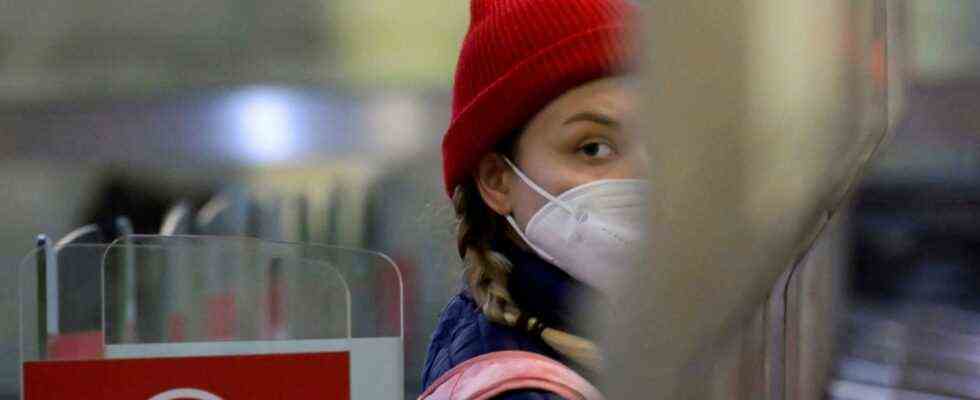Status: 10/17/2021 10:32 a.m.
In the Moscow subway, passengers can now pay with a glance at a camera. It’s convenient and quick. But concerns about seamless surveillance are also being raised.
Step up to the barrier, look briefly into the camera – if the light jumps to “green”, the journey has been paid for and the route to the metro station is cleared. FacePay is the name of the new payment system via face recognition.
For 36-year-old blogger Dmitrij Artjuchow, this is a modern and practical way to use the Moscow Metro. “I kept misplacing my metro card. You can pay with your bank card at the entrance, but I never wanted to get it out in the crowd,” he said. “And now: I look into the camera and can go in. It’s very convenient, it saves time. And my hands are free. The amount is automatically debited from the account.”
Artyukhov is one of 15,000 volunteers who tested the system for two and a half months. Now all passengers can use it if they register in advance on the Moscow Metro website, store their telephone number and bank details there and upload a current photo of themselves.
Take a look, please. Biometric facial recognition in the Moscow Metro
Image: AFP
Concern about misuse of technology
Artyukhov is not worried about the security of his data: “I have several bank cards and use the one on which there is little money. I am not known in any way and also not a politician, so that compromising material could be gathered about me.”
In doing so, however, he is addressing a point of great concern to some data protection and IT experts in Russia. Like Mikhail Klimarev, director of the Society for the Defense of the Internet. “The problem is not that someone withdraws a certain amount of money just because I walked past a camera,” he says. “The problem is that the system can be used against me. For example, to identify me as a participant in a demo.”
For example, in the wake of the last pro Navalny demonstration, some participants were arrested. According to his own statement, because they were identified by the facial recognition software.
Biometric data are required more and more frequently
State-owned companies in particular are increasingly asking their customers to store their biometric data, explains IT specialist Klimarew. That goes as far as voice samples for possible speech recognition. The argument is primarily based on particularly good protection against hacks or attempted fraud – but the new technology also offers the potential for comprehensive surveillance of Russian citizens.
Especially if this data were also recorded in a central register accessible to the authorities. I know how quickly that will happen, says Klimarew. “But I think it’s gradually going in that direction with small steps. Like George Orwell’s novel ‘1984’ – only in real life.”
FacePay user Artjukhov takes a more pragmatic view: “Everyone who has ever been in the subway or on the bus has been filmed by cameras. If you are worried about something like this, you don’t even need to go to Moscow.”
More than 200,000 surveillance cameras are installed in the Russian capital. It is not known how many of them are already equipped with facial recognition software. But soon it should all be.
Big Brother is watching you: FacePay in the Moscow Metro
Martha Wilczynski, ARD Moscow, October 17, 2021 9:39 am

